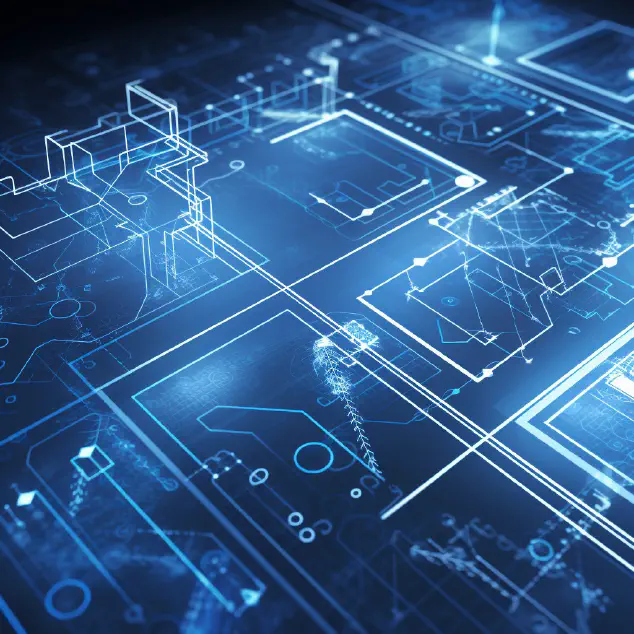Introduction
In our personal and professional lives, we often encounter challenges and obstacles that can either hinder our growth or propel us forward. The way we approach these challenges and setbacks is influenced by our mindset - our fundamental beliefs about ourselves and our abilities.
There are two primary mindsets that people tend to adopt: a fixed mindset and a growth mindset. With a fixed mindset, individuals believe that their abilities and talents are fixed, predetermined traits that cannot be changed. They see challenges as threats and feel discouraged by setbacks, often avoiding them altogether. On the other hand, a growth mindset is the belief that abilities and skills can be developed through effort, perseverance, and learning. Those with a growth mindset view challenges as opportunities for growth and embrace a mindset of continuous learning.
Transitioning from a fixed mindset to a growth mindset is crucial for personal and professional development. By embracing a growth mindset, individuals open themselves up to endless possibilities and potential for growth. Instead of seeing challenges as roadblocks, they view them as stepping stones towards success and personal development. They understand that failure is not a reflection of their worth or abilities, but rather an opportunity to learn, adapt, and improve.
By adopting a growth mindset, we can cultivate a mindset of continuous learning. This means that instead of seeing learning as a means to an end, we view it as an ongoing process that never ends. We seek out new knowledge and skills, constantly challenging ourselves to grow and improve. This mindset allows us to stay adaptable and relevant in a rapidly changing world, giving us a competitive edge.
Throughout this article, we will delve deeper into the characteristics of a fixed mindset and a growth mindset, explore the benefits of embracing a growth mindset, and discuss practical strategies for transitioning from a fixed to a growth mindset. We will also examine the importance of embracing continuous learning and provide tips for fostering a mindset of lifelong learning. So, let’s dive in and discover how we can transform our mindset from fixed to growth, opening ourselves up to a whole new world of possibilities and personal growth.
Understanding Fixed Mindset
A fixed mindset refers to a belief system in which individuals believe that their abilities, intelligence, and talents are fixed traits that cannot be changed or developed. Those with a fixed mindset tend to believe that they are born with a certain level of intelligence or talent and that these qualities cannot be improved upon. They often avoid challenges, feel threatened by the success of others, and give up easily when faced with a setback or failure.
Characteristics of a fixed mindset include a fear of failure, a desire to prove oneself, a focus on looking smart or talented, a tendency to avoid challenges, and a resistance to feedback and constructive criticism. Individuals with a fixed mindset may often feel discouraged, stressed, or inadequate when they encounter difficulties or obstacles in their personal or professional lives.
For example, someone with a fixed mindset may avoid taking on new projects at work because they fear failure and worry that they will not be able to handle the challenges that may arise. They may also shy away from seeking feedback or suggestions from others because they do not want to appear incompetent or incapable.
Moreover, individuals with a fixed mindset tend to view failure as a reflection of their own inadequacies and flaws. They may interpret failure as evidence that they lack the necessary skills or talents and may be quick to give up or avoid similar situations in the future.
It is important to understand the concept of a fixed mindset in order to recognize when we may be limiting ourselves or holding ourselves back. By gaining awareness of the beliefs and characteristics associated with a fixed mindset, we can start to challenge and change these limiting perspectives in order to adopt a growth mindset for personal and professional growth.
Recognizing the Benefits of a Growth Mindset
A growth mindset is a belief system that suggests that our abilities and intelligence can be developed through dedication, hard work, and perseverance. In contrast, a fixed mindset is a belief system that assumes our abilities and intelligence are fixed traits and cannot be changed.
Having a growth mindset has numerous benefits in personal and professional development. Let’s explore some of these benefits:
1. Increased Resilience
A growth mindset allows individuals to bounce back from setbacks and failures. Instead of being discouraged by challenges, people with a growth mindset view them as opportunities for learning and growth. They understand that setbacks are a natural part of the learning process and use them as stepping stones to improve and advance.
2. Embracing Challenges
Individuals with a growth mindset see challenges as opportunities to stretch their abilities and expand their knowledge. They thrive in challenging situations and are not afraid of taking risks. Rather than avoiding difficult tasks, they approach them with enthusiasm and a desire to learn, knowing that the more challenges they face, the more they will grow.
3. Increased Motivation
Those with a growth mindset are motivated by the belief that their efforts and hard work will lead to improvement and success. They are not demotivated by setbacks or failures, but rather see them as temporary obstacles that can be overcome with persistence and dedication. This motivation drives them to continually seek new challenges and strive for personal growth.
4. Continuous Learning
One of the key characteristics of a growth mindset is the desire to continually learn and develop. Individuals with a growth mindset understand that learning is a lifelong process and that there is always room for improvement. They actively seek out new knowledge, skills, and experiences, and are open to feedback and constructive criticism. This constant pursuit of learning allows them to stay adaptable and agile in an ever-changing world.
5. Greater Success and Achievement
A growth mindset is strongly linked to greater success and achievement in various areas of life. By believing in their ability to grow and improve, individuals with a growth mindset are more likely to set challenging goals and persist in the face of obstacles. They are not limited by self-doubt or fear of failure, but instead, they embrace opportunities for growth and actively work towards achieving their goals.
6. Improved Relationships and Collaboration
Having a growth mindset not only benefits individuals personally, but it also contributes to more positive and productive relationships. Individuals with a growth mindset are more open to others’ opinions and ideas, and they see collaboration as a way to learn from others and expand their own knowledge. This mindset fosters a culture of trust, collaboration, and innovation, leading to more successful teams and organizations.
In conclusion, recognizing and cultivating a growth mindset has numerous benefits in personal and professional development. By embracing challenges, increasing resilience, and continuously learning, individuals with a growth mindset can achieve greater success and fulfillment in life. It is important for individuals to understand the potential of a growth mindset and actively work towards developing and nurturing it in themselves and others.
Overcoming Fixed Mindset
Identifying common obstacles and barriers
Transitioning from a fixed mindset to a growth mindset is not always easy. There are a number of common obstacles and barriers that can hinder this transition. Some of these obstacles include:
-
Fear of failure: A fixed mindset often stems from a fear of failure. People with a fixed mindset may avoid taking risks or trying new things because they are afraid of making mistakes or not being successful. This fear can hold them back from embracing a growth mindset.
-
Negative self-talk: Individuals with a fixed mindset often engage in negative self-talk. They may constantly criticize themselves and believe that they are not capable of change or improvement. This negative self-talk can be a major barrier to developing a growth mindset.
-
Comfort zone mentality: People with a fixed mindset tend to stick to what is comfortable and familiar. They may resist stepping outside of their comfort zone and trying new things. This comfort zone mentality can prevent them from embracing challenges and experiencing personal growth.
Practical tips and strategies
Fortunately, there are practical tips and strategies that can help individuals overcome a fixed mindset and develop a growth mindset. Here are some effective strategies:
-
Challenge your beliefs: Start by challenging your existing beliefs about intelligence and abilities. Recognize that intelligence is not fixed and can be developed through effort and learning. Embrace the idea that you can improve and grow over time.
-
Embrace failure as a learning opportunity: Instead of fearing failure, view it as an opportunity to learn and grow. Understand that making mistakes is a natural part of the learning process. When you encounter setbacks or failures, reflect on what you can learn from them and how you can improve in the future.
-
Practice self-compassion: Replace negative self-talk with self-compassion. Treat yourself with kindness and understanding, especially when facing challenges or setbacks. Remind yourself that everyone makes mistakes and that it is through these mistakes that we learn and grow.
-
Set realistic goals: Break down your goals into smaller, manageable tasks. This can help prevent feelings of overwhelm and allow you to make progress step by step. Celebrate your achievements along the way, no matter how small they may seem.
-
Surround yourself with positive influences: Surround yourself with people who have a growth mindset and who encourage and support your personal growth. Seek out mentors or role models who inspire you and can provide guidance along your journey.
-
Cultivate a love for learning: Foster a passion for learning and curiosity. Embrace new challenges and seek out opportunities for personal and professional development. Engage in activities that expand your knowledge and skills, whether it’s reading books, attending workshops, or taking up new hobbies.
Success stories and personal anecdotes
It can be helpful to hear success stories and personal anecdotes of individuals who have successfully transitioned from a fixed mindset to a growth mindset. These stories serve as inspiration and motivation for others on their own journey. They demonstrate that it is possible to overcome a fixed mindset and achieve personal growth and success.
For example, one success story might be about a student who initially believed that they were not good at math. They struggled with their math classes and believed that they would never improve. However, with the help of a supportive teacher and a change in mindset, they began to see math as a challenge to be embraced rather than a barrier to their success. They started seeking extra help, studying diligently, and practicing regularly. Over time, their grades improved significantly, and they even began to enjoy the subject. This student’s story highlights the power of a growth mindset and the potential for transformation when beliefs are shifted.
By sharing success stories and personal anecdotes like these, individuals who are struggling with a fixed mindset can see that change is possible. They can draw inspiration from others who have overcome similar obstacles and find hope in the fact that they too can develop a growth mindset and achieve their goals.
Embracing Continuous Learning
Continuous learning is the key to personal and professional growth. It is the process of constantly seeking knowledge, acquiring new skills, and expanding one’s understanding of the world and oneself. Embracing continuous learning enables individuals to adapt to changing circumstances, stay relevant in their fields, and unlock their full potential.
Importance of Embracing Continuous Learning
-
Staying Relevant: In today’s fast-paced and ever-changing world, it is essential to stay updated with the latest trends, technologies, and knowledge. Embracing continuous learning allows individuals to stay relevant in their industries and avoid becoming obsolete.
-
Improving Skills: Continuous learning provides opportunities to improve existing skills and acquire new ones. By continuously seeking new knowledge, individuals can enhance their expertise and become more competitive in their fields.
-
Fostering Adaptability: A willingness to learn and adapt is crucial in an increasingly dynamic and unpredictable world. Embracing continuous learning enables individuals to develop the flexibility and resilience needed to navigate through challenges and seize new opportunities.
-
Personal Growth: Learning is not just about gaining knowledge; it is also a transformative experience that promotes personal growth and self-improvement. Continuous learning helps individuals develop critical thinking, problem-solving, and creativity, which are valuable skills applicable to various aspects of life.
Examples of Embracing Continuous Learning
-
Professional Development: Many successful professionals make continuous learning a priority by attending workshops, conferences, and webinars in their respective fields. They also take up further education courses, obtain certifications or licenses, and actively seek new challenges to expand their knowledge base and skillset.
-
Reading and Research: Reading books, academic papers, industry journals, and online articles is an effective way to constantly learn and stay informed. Continuous learning through reading allows individuals to explore diverse perspectives, gain new insights, and keep up with the latest developments in their areas of interest.
-
Networking and Collaboration: Engaging with a diverse range of individuals through networking events, mentorships, and collaborations can significantly contribute to continuous learning. Interacting with others allows for the exchange of ideas, sharing of experiences, and learning from each other’s expertise.
Strategies for Fostering a Mindset of Continuous Learning
-
Set Learning Goals: Identify specific areas in which you want to grow and set achievable learning goals. Having clear goals provides direction and motivation for continuous learning.
-
Create a Learning Plan: Develop a learning plan that outlines the resources, courses, or activities you need to undertake to achieve your learning goals. This plan can help you stay organized and focused on your learning journey.
-
Allocate Time for Learning: Make learning a priority by scheduling dedicated time in your daily or weekly routine. Allocating time for learning demonstrates your commitment and ensures that you consistently engage in the learning process.
-
Embrace Failure: Embrace failures and setbacks as opportunities for learning and growth. Understand that mistakes are valuable learning experiences that can help you refine your skills and improve your understanding.
-
Seek Feedback: Actively seek feedback from mentors, colleagues, or peers to gain different perspectives and insights. Feedback can help you identify areas for improvement and refine your learning approach.
-
Embrace New Experiences: Step out of your comfort zone and embrace new experiences and challenges. Trying new things broadens your horizons, exposes you to different perspectives, and promotes continuous growth and learning.
In conclusion, embracing continuous learning is vital for personal and professional development. By recognizing the importance of lifelong learning, adopting strategies to foster continuous learning, and being open to new experiences, individuals can cultivate a growth mindset and unlock their full potential. So, let’s embark on the journey of continuous learning and embrace the endless possibilities it brings.
Conclusion
In conclusion, developing a growth mindset and embracing continuous learning is crucial for personal and professional growth. By understanding the difference between a fixed mindset and a growth mindset, we can begin to recognize any limiting beliefs and attitudes that may be holding us back.
A fixed mindset, with its beliefs of talent and intelligence being fixed traits, can hinder our ability to reach our full potential. It can lead to a fear of failure, a resistance to challenges, and a tendency to give up easily. On the other hand, a growth mindset encourages us to see challenges as opportunities for growth and to believe in our ability to learn and improve over time.
By transitioning from a fixed mindset to a growth mindset, we open ourselves up to endless possibilities. We can overcome obstacles and setbacks with resilience and determination. We can develop new skills and deepen our knowledge in areas that interest us. And most importantly, we can grow not only professionally but also personally.
Developing a growth mindset requires effort and self-awareness. We need to challenge our negative beliefs and replace them with positive affirmations. We need to reframe failures as learning experiences and seek feedback to improve. We must also cultivate a love for learning, embrace curiosity, and be open to new ideas and perspectives.
Embracing continuous learning is a lifelong journey. It means seeking out new knowledge and skills, even outside our comfort zone. It means staying curious and never settling for mediocrity. It means constantly striving to improve and grow.
So, let us all take a moment to reflect on our mindset and commit to developing a growth mindset and embracing continuous learning. Let us view challenges as opportunities for growth, believe in our ability to learn and improve, and foster a love for learning in every aspect of our lives. By doing so, we will unlock our full potential and experience personal and professional growth like never before.


